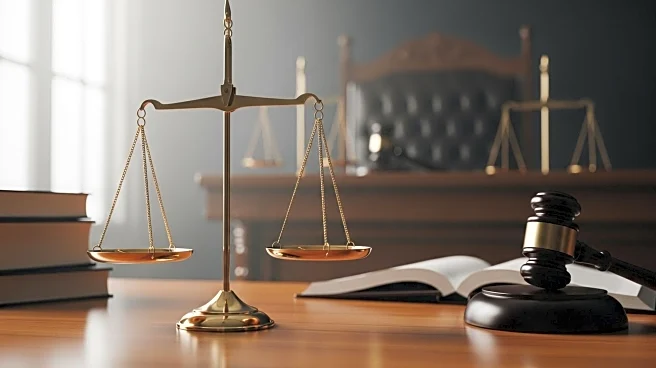What's Happening?
A Michigan judge has dismissed criminal charges against 15 individuals who were accused of attempting to falsely certify President Trump as the winner of the 2020 presidential election. The charges were related to allegations that these individuals tried to submit false documents to certify the election results in favor of President Trump. This decision comes amid ongoing debates and legal battles over the legitimacy of the 2020 election results, which have been a point of contention in various states. The judge's ruling effectively ends the prosecution of these individuals, who were part of a larger group of so-called 'fake electors' involved in similar efforts across the country.
Why It's Important?
The dismissal of charges against these 15 individuals is significant as it highlights the complexities and challenges in prosecuting cases related to election integrity and alleged fraud. This decision may influence similar cases in other states, potentially affecting the legal strategies of both prosecutors and defense attorneys involved in election-related litigation. The ruling also underscores the ongoing political and legal debates surrounding the 2020 election, which continue to impact public trust in the electoral process and the broader political landscape. For supporters of President Trump, this decision may be seen as a vindication, while opponents may view it as a setback in efforts to hold individuals accountable for actions perceived as undermining democratic processes.
What's Next?
The dismissal of these charges may prompt further legal and political responses from various stakeholders. Prosecutors may consider appealing the decision or pursuing alternative legal avenues to address concerns about election integrity. Additionally, this ruling could influence legislative efforts aimed at reforming election laws and procedures to prevent similar incidents in future elections. Political leaders and advocacy groups on both sides of the issue are likely to use this development to bolster their respective narratives about the 2020 election and the need for electoral reforms.








